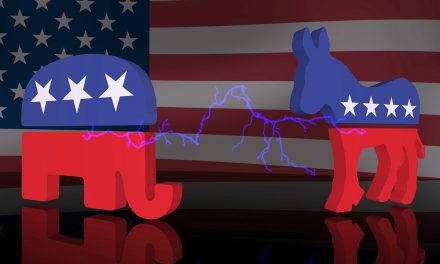Image by Oberholster Venita from Pixabay
Updated July 24, 2019 –
Despite overall strength, an Achilles heel is major weakness that can lead to a breakdown.
In Greek mythology, Achilles was the mightiest Greek warrior and a hero in the Trojan War. He was invincible except for one weakness in his body – his heel.
Mythological writings state he died when he was shot in the heel with an arrow. It was his weak point because when he was a baby, his mother had dipped him in the river, Styx, while holding him by his heel.
In fast forwarding to the 21st century regarding the nation’s economy, note an Achilles heel is an idiomatic reference to qualities indicating the U.S. is in danger of collapsing.
Yes, two economic forces – health care and the federal debt – are Achilles’ heels and threaten America’s prosperity.
Health care
Solutions are needed for the nation’s broken health-care system and to curb spiraling costs.
America is at a stalemate in health-care affordability. Via taxes, premiums and out-of-pocket costs, Americans pay 75 percent more for health care than the Canadians and Europeans.
As a result of price gouging, sky-high premiums and taxes, ACA, or ObamaCare, is doomed to collapse.
It’s a serious issue: With the mandate on businesses with 50 or more workers to buy federally approved insurance; government-operated marketplaces for remaining Americans; and it enables three dozen states to expand Medicaid.
Even with 90-percent federal subsidies, published reports indicate it means higher premiums on healthier and younger people. It also substantially increases state health-care costs with the county-level insurance exchanges.
Medicare paperwork overwhelms doctors.
Other health-care issues
Hospitals, large medical groups and insurance companies have been accused of being cartels – colluding to stymie competition – driving up prices and increasing their dominance in administering and overseeing procedures and tests.
Drug companies are free to set prices for Medicare recipients. Large medical groups now provide care to large regions in the country. But other doctors employed at big hospitals are, in a sense, penalized because they’re often not paid as well.
Even though Congress abolished the unpopular individual mandate in 2018, large employers are still mandated to provide insurance. For many companies, it costs them $20,000 annually for family policies.
The “Medicare for all” Americans plan advanced by Socialist Bernie Sanders and generally supported by many Democrats would mean unsustainable astronomical costs – as much as $35 trillion or higher over a 10-year period.
Indeed, single-payer health care in Canada and Europe has been widely condemned for frequent inaccessibility and exploding high taxes. They’re just moving costly funding around.
In other words, this means it’s cheaper for individual patients, but taxpayers are stuck with the high price-tags for the single-payer systems.
On becoming UK Prime Minister, Boris Johnson vowed to improve care. For example, for patients, he said the three-week wait just to get an appointment with a general practitioner was unacceptable and had to fixed.
When Republicans controlled the House of Representatives, they embraced health-care spending accounts and entrusted states with Medicaid block grants.
But they failed do what was necessary to alleviate the health-care debacle.
Health-care solutions
Congress has been inept in dealing with this crisis.
It will take strong White House leadership to continue attacking high drug prices and begin curtailing behavior of pharmaceutical companies, as well as the anti-competitive practices of benefit managers and insurance companies.
And, oh yes, a crackdown is needed on those major hospital and large medical groups – deny them access to federal funds until they behave well.
These solutions will hinder the movement for a socialist single-payer system and a looming economic threat.
National debt
America’s gross domestic product (GDP) is an important measurement of economic activity. It’s the total of market values in U.S. goods and services.
Specifically, GDP is calculated by personal and public utilization; private and public investments; government spending; and higher exports vis-à-vis imports.
In helping to track the health of the U.S. economy, GDP is used by economists to determine whether the economy is expanding or contracting.
It’s important to investors in making their investment decisions. They want to know the strength of the economy because of the impacts on corporate earnings and stock prices.
It’s been well documented that Trump Administration economic policies have led to widespread prosperity – for instance, a skyrocketing stock market, higher wages for workers, the lowest unemployment rate in five decades, and the bold trade initiatives to get reciprocity in trade to balance the budget.
But government spending is taking a huge portion out of the GDP. As the debt-to-GDP ratios mount, debt holders require larger interest payments.
As of this writing, the debt comprises 78 percent of the nation’s GDP. If it continues unabated, the Congressional Budget Office forecasts the debt will explode to 144 percent of GDP in 30 years.
As for health care spending, it accounts for 17.9 percent of GDP according to the federal government’s Centers for Medicare & Medicaid Services.
So, the debt continues to soar according to the nation’s debt clock:
Historically – before the heavy spending under Presidents Bush and Obama who significantly increased spending – America’s leaders used to manage the national debt.
The nation’s debt exploded as a result of wars in the two previous centuries, but it was paid down.
Even in the aftermath of the devastating Civil War, the federal government operated on budget surpluses for nearly three decades. That’s when the national debt plunged to just 7 percent from 31 percent of GDP.
While it’s comforting the Trump Administration is cutting back on Mideast activities and increasing the military budgets to diminish the likelihood of future wars, we are mostly in peacetime but the debt is skyrocketing.
Runaway spending with a propensity to spend without any hint of fiscal responsibility – Congress, Republicans and Democrats, alike – worsens our fiscal crisis.
Political leaders are harming the U.S. Americans need for relief from Congressional extravagance and the politicians’ desire to deliver pork just so they can be reelected.
It’s pastime for fiscal sobriety and economic patriotism to deal with health care and debt issues – the two Achilles’ heels threatening America.
From the Coach’s Corner, editor’s picks:
Both Democrats and Republicans Endanger U.S. Economy – Have we not learned any lessons from the horrors of the Great Recession from a decade ago? Apparently not.
A Little-Known Benefit of the President’s Trade Tariff Policies – There’s an often-overlooked indicator the Trump trade tariffs are important for a stronger U.S. economy. Shockingly, before the election of President Trump, too many production workers were drawing welfare-related benefits to supplement their wages.
Myths and Truths about Dealing with China and the Tariffs – Five decades ago, the U.S. and China did not have diplomatic relations. But in 1972 it was universally felt that diplomatic relations with China was a worthwhile optimistic goal. Now as it turns out, China’s behavior has become an economic and political powder keg. Here is the solution.
1.36 Million Jobs Would be Created by Tariffs on China – Study – A 25 percent tariff on all imports from China would create 1.36 million jobs in five years, according to an economic study.
USMCA Will Stop that ‘Giant Sucking Sound’ – You might recall what many politicians considered a ridiculous idea during a debate in the 1992 presidential campaign. Two years before it was implemented in 1994, Ross Perot argued NAFTA would not be a two-way street. Though sounding facetious, he accurately predicted NAFTA would create a giant sucking sound.







